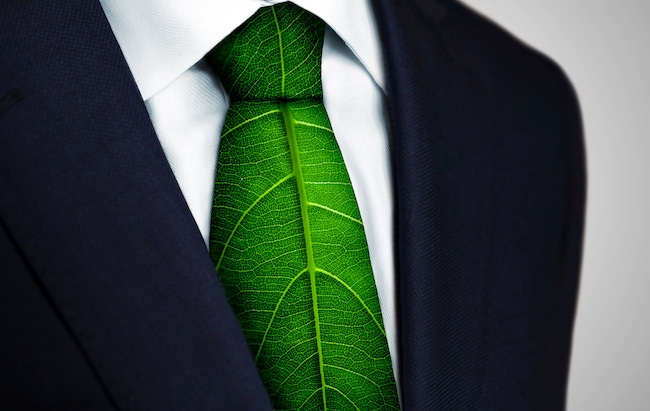GreenBiz editorial calls recycling greatest example of ‘greenwashing’
“Not only is recycling completely ineffective, it is directly contributing to global health degradation and associated societal injustices,” claims the editorial.
December 30, 2019

Recycling has its challenges. In 2019, a number of anti-plastic activist organizations have determined that, for all the nationwide attempts to make recycling a real solution to plastic waste, most plastics do not get recycled. Recently in numerous news articles, recycling is being called out as just another “greenwashing” scam, a picture being painted after 30 years of high expectations that have gone largely unmet.
In a Dec. 18 editorial for GreenBiz, “It’s Time to Trash Recycling,” Ross Polk points out that “this house of cards is beginning to tumble,” as markets for many recyclable materials—including paper, glass, low-quality aluminum and plastics—have evaporated. He also notes that many Asian countries that used to accept these materials now reject them, sending the materials back to the countries of origin.
Perhaps the plastics industry oversold consumers on the idea that recycling could solve the problems of plastic waste. When the push for recycling plastics began, which came after the success of collecting glass bottles and aluminum cans, there wasn’t as much plastic being used. Many consumer items such as food, beverage and personal care came in glass containers. As innovations in plastic materials for those products gave brand owners better alternatives to heavier materials—the opportunity to reduce shipping weight, lengthen shelf life and better protect the content—more and more products began to be packaged in plastics.
The ultimate result was that the variety of polymer materials that could be used in more and more consumer products outstripped the ability to collect, sort and recycle all of these different materials. Suddenly, the promise of recycling as an answer to plastic waste wasn’t as good as that of recycling glass or aluminum, where you have basically one type of material in each of these two categories instead of seven, eight or more types of plastic.
Polk comes down hard on the plastics industry’s failures in recycling. “Not only is recycling completely ineffective, it is directly contributing to global health degradation and associated societal injustices,” he writes.
Polk, who used to work for Waste Management Sustainability Services as a Sustainability Consultant according to his LinkedIn profile, decries the working conditions at many of the recycling facilities, noting that the “workforce is consistently exposed to dangerous working conditions and toxic chemicals for minimal pay. . . . The result is that the true cost of our current material management system is hidden.”
He further plays the “toxic” plastic tune, noting that “recycling materials that are inherently toxic means that we’re simply giving a dangerous substance another chance to poison the environment and our bodies.” Polk favors the “bio-economy” that makes use of “chemicals and materials that are readily found in nature . . . and eliminate toxic pollutants regardless of how materials and products are managed” at the end of their lifecycle.
Corporate responsibility strategies that “continue to be dominated by traditional recycling initiatives” find no favor with Polk. He believes that recycling is a poor substitute for meaningful solutions, such as reducing “the number of materials and products we consume through design and education and rid ourselves of our reliance on the blue bin.”
He calls for products to be “designed for longevity, advanced disassembly and reuse rather than obsolescence,” and for society to disconnect “happiness from the act of purchasing goods and embrace business models that promote higher resource use, reuse and true repurposing.”
What Polk doesn’t recognize is that reuse of certain products—particularly the drive to replace single-use plastic containers, bottles, drinking cups/glasses with reusable glass and aluminum—also has an environmental cost in the increased use of resources such as energy and water needed in the production of these heavier, recyclable materials.
Polk doesn’t even approve of the various NGOs that have been created to address the challenges of recycling, such as the Alliance to End Plastic Waste founded by the major petrochemical companies, which he sees as “muddying the waters” of solutions to plastic waste. “The organization will commit to anything other than those solutions that target the root causality,” writes Polk. “They’re simultaneously promising beach cleanups, while its key members, including Shell, ExxonMobil and Sabic, announce plans to build new multi-billion-dollar polyethylene and petrochemical plants that produce the inexpensive, toxic products that wash up on those same beaches.”
Polk is like so many other activists who call for the plastics industry to take responsibility for the materials it has created, yet, in the same breath, denounce any and all plans by these same companies to solve the plastic waste “crisis.” The only solution they will countenance is the complete elimination of plastics in daily life.
Perhaps the plastics industry made some missteps when developing the whole recycling scheme. Maybe there should have been only one or two materials to be recycled: PET and HDPE. It would have been much easier for consumers to deal with one or two types of plastic items than seven, five of which are not recyclable by traditional means.
There is not a one-size-fits-all solution to the plastic waste problem, and innovative methods of recycling are moving beyond mechanical recycling to chemical recycling, which shows a lot of promise. Ridding the world of all plastic is not the answer, either. People like Polk should support the various solutions that companies are developing and applaud the progress instead of calling recycling “greenwashing.”
Image: AB Visual Arts/Adobe Stock
About the Author(s)
You May Also Like



